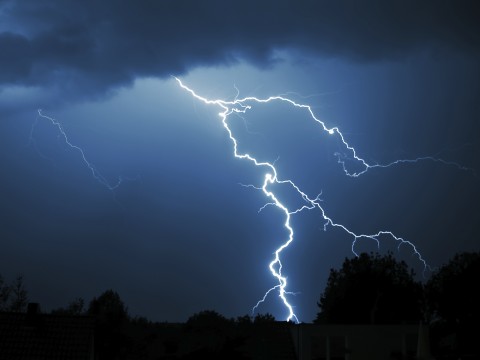
Asking questions is one of the most effective ways for getting to know someone on a personal level. People tend to be curious about things, and as social creatures, this often applies to the people around us. Knowing the top ten English questions and how to answer them will help you get to know the people around you, and help them know you better in exchange!
In this article, I’ll introduce you to the most essential English questions and answers for beginners and intermediate learners. For each question, there will be:
- A breakdown of the most popular form of the question.
- A list of alternative ways to ask the question (if any).
- A table of possible answers to common English questions, with examples and additional notes if needed.
Let’s dive in!
- → If you’re not quite comfortable with your current introduction skills, EnglishClass101.com has an article all about introducing yourself that you can start with.
 Table of Contents
Table of Contents
- Question Words in English
- What’s your name?
- Where are you from?
- What do you do?
- Do you have any brothers or sisters?
- How long have you been studying English?
- How are you?
- What time is it?
- What are you doing?
- What’s wrong?
- What’s the weather like?
- Final Thoughts
1. Question Words in English
Before I discuss questions and answers in English conversations, I’ll briefly cover an important topic: question words in English.
In English, there are six main words that we tend to use when asking questions. These are:
- What: Used when asking for information about something.
- Where: Used when asking about location.
- When: Used when asking about time.
- Who: Used when asking about a person or people.
- Why: Used when asking about motive or intention.
- How: Used when asking about the means by which something happened.
We almost always put these words at the very beginning of a question.
You’ll notice that all of these words begin with a “W” except for the last one. When children are learning English, these question words are often referred to as “Five W’s and an H” to help them remember. There are additional question words, but these six are used most often, especially in journalism.
As you read this article, you’ll also see that “what” is the most commonly used question word. This is because it’s extremely versatile, and can be used to ask a variety of question types.
2. What’s your name?

When you first meet someone, usually the first question they ask is “What is your name?” Before we learn how to answer, let’s break down the question:
| Question Word | “To Be” Verb | Second-Person Possessive Pronoun | What You’re Called |
| What | is | your | name? |
As you can see, the question begins with a “question word.” This is the word a person uses to show that they want some kind of information, and they usually go at the beginning of a question.
The question word is followed by a “to be” verb, in this case, the word “is.” This indicates that the person is inquiring about the status or definition of something.
Next is the word “your,” which is the possessive form of the second-person pronoun “you.” They’re asking about the name that belongs to you, and no one else.
Finally is the word “name,” which is the piece of information the person is after. When you put the question together, they’re basically asking what you are called, or what name belongs to you.
Alternative Questions
Here are two other ways of asking the same question:
- “What’s your name?”
- “What can I call you?”
Possible Patterns & Answers
There are four basic sentence patterns you can use to answer this question. In each one, simply fill in the blank with your name.
| Pattern | Answer | Additional Note |
| My name is ___. | My name is Tom. My name is Alisha. | More formal |
| You can call me ___. | You can call me Tom. You can call me Alisha. | More formal |
| I’m ___. | I’m Tom. I’m Alisha. | Less formal |
| ___. | Tom. Alisha. | Less formal |
3. Where are you from?
Learning where someone is from can be very exciting, and many people in the United States love to learn about other places. The next question you’re likely to hear is “Where are you from?”
| Question Word | “To Be” Verb | Second-Person Pronoun | Preposition Referring to Origin |
| Where | are | you | from? |
This question structure is very similar to the one above. It begins with a question word for location, followed by a “to be” verb and second-person pronoun. The last word, “from,” indicates that the speaker wants to know your original location, or where you lived before.
Possible Patterns & Answers
The simplest way to answer this question is with the pattern “I’m from ___.” You just need to put the name of your home country in the blank. If you want, you can also include the name of the state, city, or town you’re from, like in the last example.
| Pattern | Answer |
| I’m from ___. | I’m from Norway. I’m from the U.S.A. I’m from Germany. I’m from Lublin, Poland. |
- → Not sure what your country is called in English? Check out EnglishClass101’s Vocabulary for Nationalities page!
4. What do you do?

In the United States, people love talking about their jobs and hearing what other people do for a living. While you’re getting to know someone, you’re going to hear the question “What do you do?”
| Question Word | Perform Action Of | Second-Person Pronoun | Perform Action Of |
| What | do | you | do? |
This question begins with the question word “what,” followed by the word “do,” which means to perform an action. Next is the second-person pronoun “you,” also followed by the word “do.”
Alternative Questions
Here are two more ways of asking the same question:
- “What do you do for a living?”
- “Where do you work?”
Possible Patterns & Answers
| Pattern | Answer | Additional Notes |
| I am a(n) ___. | I am a teacher. I am a programmer. I am a writer. I am an accountant. | Fill in the blank with your job. |
| I work as a(n) ___. | I work as a teacher. I work as a programmer. I work as a writer. I work as an accountant. | Fill in the blank with your job. |
| I work at ___. | I work at the elementary school. I work at Google. I work at home. I work at a large company. | Fill in the blank with your place of work. |
- → Check out EnglishClass101’s vocabulary list on Jobs & Work to figure out what your job is called. Alternatively, if you’re looking for work in the United States, we’ve also curated an article on how to find and attain the best U.S. job for you!
5. Do you have any brothers or sisters?

Once a new acquaintance starts getting to know you better, they’ll probably want to know if you have any siblings. A common way to ask this question is: “Do you have any brothers or sisters?”
| Perform Action Of | Second-Person Pronoun | To Own | Indefinite Pronoun | Male Siblings | Word Referring To Another Possibility | Female Siblings |
| Do | you | have | any | brothers | or | sisters? |
This question has a few more words than the other ones we’ve looked at, and doesn’t begin with a “real” question word. The word “do,” when used at the beginning of a question, is sometimes called a “dummy” question word—it’s a word that can indicate a question despite not technically serving that purpose in English grammar.
When you put the above question together, it shows that the other person is asking if you have siblings. The indefinite pronoun “any” leaves the question slightly open-ended, so you can answer more specifically about how many siblings you have, what gender they are, and even whether they’re older or younger than you.
There are three basic patterns you can use to answer.
Alternative Questions
Here are two other questions in English that basically ask the same thing:
- “Do you have any siblings?”
- “Are you an only child?”
Possible Patterns & Answers
| Pattern | Answer | Additional Notes |
| I have (a) ___. | I have a sister. I have a brother. I have a younger sister. I have an older brother. I have three sisters. I have one older sister. | You can also indicate whether your sibling (or siblings) is older or younger than you by using the appropriate adjective. |
| I have ___ and ___. | I have two brothers and one sister. I have three sisters and one brother. | Use if you have siblings of different genders. |
| No, I don’t. I’m an only child. | – | Use if you don’t have any siblings. |
- → Do you need to learn some additional vocabulary to talk about your siblings and family? EnglishClass101 has a word list for you, and a blog post all about family in the United States!
6. How long have you been studying English?

Your conversation partner is very impressed so far with your English speaking and communication skills. They ask “How long have you been studying English?”
| Question Word | An Amount Of Time | Second-Person Pronoun | Gerund Form Of The Word “Study” | The English Language | ||
| How | long | have | you | been | studying | English? |
This is another long question, but it does a better job of following the usual question format. Before we move on to possible answers, please note the words “have” and “been.” Even though there’s a word separating them, it’s important to see how these two words work together.
When someone says the phrase “have been,” it indicates that something has been going on for a certain amount of time. So, in this question, they want to know the amount of time that you have been studying the English language.
Possible Patterns & Answers
| Pattern | Answer | Additional Notes |
| I’ve been studying for ___. | I’ve been studying for one month. I’ve been studying for two years. | Most formal. |
| For ___. | For five years. For three weeks. | Less formal. |
| ___. | Nine months. A few years. | Least formal. |
- → To learn more about how to say dates in English, check out EnglishClass101’s article on this very topic.
7. How are you?

Congratulations! You’ve officially made a new friend, and you’re getting coffee together a week later. The moment you see each other again, they ask “How are you?”
| Question Word | “To Be” Verb | Second-Person Pronoun |
| How | are | you? |
This is one of the most basic English questions that family, friends, and even colleagues ask each other all the time. As you can see above, it’s simply a question word followed by the “to be” verb “are,” and then the second-person pronoun “you.” Basically, they’re asking about your status—how you’re feeling or how your week has been.
Alternative Questions
You may also hear the question asked this way:
- “How are you doing?”
- “How have you been?”
Possible Patterns & Answers
| Pattern | Answer | Additional Notes |
| I’m doing ___. | I’m doing fine. I’m doing pretty good. | While the word “doing” is used in this answer, it doesn’t refer to a specific action. It instead refers to how you’re feeling or how life is going for you. |
| I’m ___. | I’m okay. I’m great. | This is basically the same as the above pattern, but shorter. |
| I’ve been ___. | I’ve been well. I’ve been alright. | Using this pattern indicates that you’re answering about how you’ve been feeling over a longer period of time. For example, if you haven’t seen someone in a few months, and they ask you this, you’ll tell them how you’ve been over the last few months. |
- → Learn how to express what you’re feeling with our relevant vocabulary lists: Top 20 Words for Positive Emotions and Top 21 Words for Negative Emotions.
8. What time is it?

Another very frequent question you’re likely to hear is “What time is it?”
| Question Word | The Current Time (Hours/Minutes) | “To Be” Verb | Pronoun Referring to the Word “Time” |
| What | time | is | it? |
In this question, you can see that the question word “what” is placed at the beginning of the sentence, followed by the information being requested (“time”). Next is the “to be” verb “is” and the pronoun “it,” which in this case refers to the earlier-used word “time.” The person is simply asking you for the current time, usually in hours and minutes.
Alternative Questions
You may also hear the question asked this way:
- “Do you have the time?”
Possible Patterns & Answers
| Pattern | Answer | Additional Notes |
| It’s ___ o’clock. | It’s twelve o’clock. It’s three o’clock. | Most formal. |
| It’s ___. | It’s two-thirty. It’s nine-fifteen. | Less formal. |
| ___. | Ten. Four forty-five. | Least formal. |
- → For more information on how to tell time in English, be sure to read EnglishClass101’s relevant blog post on the topic. Or, you can simply take a look at our time-related vocabulary list.
9. What are you doing?

Whether you’re having a casual conversation over text message or a coworker wants to know what task you’re performing, the question “What are you doing?“ is going to come up a lot.
| Question Word | “To Be“ Verb | Second-Person Pronoun | To Be Performing An Action |
| What | are | you | doing? |
The question word “what” begins the question, followed by the to-be verb “are.” Next comes the second-person pronoun “you” and the word “doing,” which refers to an action being performed. The person wants to know what action you’re performing.
Alternative Questions
You may also hear the question asked this way:
- “What are you up to?”
Possible Patterns & Answers
| Pattern | Answer | Additional Notes |
| I’m ___. | I’m thinking. I’m writing. I’m watching TV. I’m working out. | Simply fill in the blank with the gerund form of the action you’re doing. |
| Nothing much. | – | Use this if you’re not really doing anything important, or if you don’t feel like sharing what you’re doing. This is a common answer between friends or in other casual conversations. |
- → Find your favorite hobbies on our relevant vocabulary list!
10. What’s wrong?

Have you made a close friend in the U.S.? If so, they may ask you the question “What’s wrong?” if you seem sad or hurt about something, or if something doesn’t seem right.
| Contraction of “What” and “Is” | Upsetting You / Not Right |
| What’s | wrong? |
Because this question is most commonly used between close friends or family members, the contraction “what’s” is almost always used. This is the contraction of the question word “what” and the “to be” verb “is.” Next is the word “wrong,” which refers to something that’s not correct, or something that’s upsetting you.
Alternative Questions
You may also hear the question asked like this:
- “Is something wrong?”
- “What’s the matter?”
- “Are you okay?”
Possible Patterns & Answers
| Pattern | Answer | Additional Notes |
| I’m ___. | I’m tired. I’m sad. I’m sick. I’m stressed. | Simply fill in the blank with an adjective that describes how you feel. |
| Nothing. | – | You can use any of these three phrases if you don’t feel like talking about what’s wrong, or if there really is nothing wrong. |
| Nothing’s wrong. | – | |
| I don’t want to talk about it. | – |
- → Are you unsure of how to express your emotions in English? Study our vocabulary list on the 21 most common negative emotions.
11. What’s the weather like?

You’ll most likely hear the question “What’s the weather like?” during a conversation with someone you don’t know very well, especially if you’re trying to get to know each other.
| Contraction of “What“ and “Is“ | Definite Article | Referring to Weather Conditions or Climate | A Word Used for Comparison or Description |
| What’s | the | weather | like? |
Like we saw in the previous question, this question begins with the contraction “what’s,” meaning “what is.” Next is the definite article “the,” followed by the word “weather,” which refers to things like temperature and climate. At the end of the sentence is the word “like,” which in this case is a word that’s used for making comparisons or adding a description to something. The person wants to know how you would describe the weather.
Alternative Questions
Here are two other ways you may hear this question asked:
- “How’s the weather?”
- “What’s the weather like in ___ [the place you’re from]?”
Possible Patterns & Answers
| Pattern | Answer | Additional Notes |
| It’s ___. | It’s sunny. It’s rainy. It’s cloudy. | Used for one adjective. |
| It’s ___ and ___. | It’s hot and humid. It’s cold and dry. | Used for two adjectives. |
| It’s ___ in ___. | It’s warm in Florida. It’s hot in Indonesia. It’s cold in Russia. | Use this pattern if someone asks you what the weather is like where you’re from. The first blank is the weather adjective and the second blank is where you’re from. |
- → Study EnglishClass101’s list of the 15 most common weather conditions to expand your weather vocabulary. For a more in-depth look at the weather in the United States, read our U.S. Weather article as well!
12. Final Thoughts
In this article, we covered a mix of common English questions and answers. Some of them are important for new language-learners to master, and others are essential for anyone planning a vacation (or move) to the United States.
But this is just the tip of the iceberg—there are many more question and answer patterns you should know as you continue learning the language. For detailed lessons on even more essential questions for English-learners, we recommend that you go through our 25 Questions Lesson Series.
One of the best ways you can prepare to use these questions and answers is to start practicing today! Whether you want to write all of them down on a piece of paper to take with you places, or practice only one a week as much as you can, any amount of real-life usage is going to help you get the hang of it.
Before you go, why not leave us a comment with answers to some of these questions? We always love hearing from you, and look forward to learning more about you.
Happy English learning! 🙂










